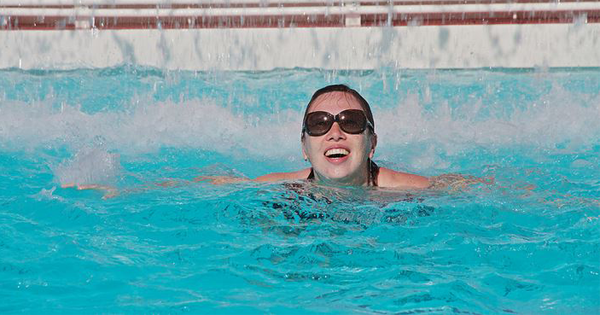Advertisement
Ignorance is bliss. We never really believe that line, because we think we’d be better off knowing everything there is to know.
In this particular case, though, knowledge might actually ruin your entire summer—and every single summer after that.
According to Women’s Health, the CDC has teamed up with the Water Quality and Health Council and the National Swimming Pool Foundation for their annual Healthy Swimming Program to educate Americans on the dangers of pools.
While there are many, many dangers and health hazards involved in swimming pools, one horrifying piece of information stands out among the rest.
Your eyes aren’t turning red when you get out of the water because of chlorine, like you always thought.
It’s actually pee. PEE—in your eyes! And if it’s not pee causing that reaction, it might be sweat, which is only slightly better than pee.
"Chlorine binds with all the things it's trying to kill from your bodies, and it forms these chemical irritants," said Michael J. Beach, Ph.D., associate director of the CDC's Healthy Water program. "That's what's stinging your eyes. It's the chlorine binding to the urine and the sweat."
Unfortunately for those of us being clued in to this little secret, that’s not the only horrifying thing about swimming pools.
Ever felt sick after going swimming? Maybe you always assumed a bug just happened to be going around, coincidentally a couple of days after you went to the public pool.
Maybe that is what happened, but the more likely scenario is that somebody with diarrhea was swimming in the pool with you.
While that doesn’t mean people are actually pooping in the pool (at least, we hope not), it does mean that their germs are being passed on to others.
"We have a new parasitic germ that has emerged that's immune to chlorine," said Beach. "We've got to keep it out of the pool in the first place. We need additional barriers."
Health experts say the best way to avoid these disgusting problems is to shower before entering the pool and never jump in with an upset stomach.
That is, if you ever actually plan on going swimming again.
Are you surprised by this? Tell us in the comments!
Photo Copyright © 2013 Michael Bentley/Flickr




